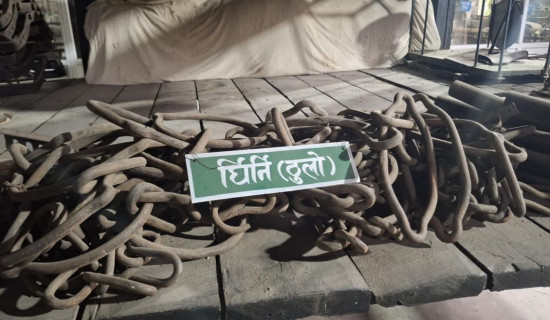- Saturday, 21 June 2025
Food Aid For Gaza
There remains a direct connection between war and food insecurity, with war disrupting cycles of food security. Food production, procurement, preparation, allocation, consumption and biological utilisation are the major food security cycles. Over the years, history has been evidence of this idea, with the Israel-Hamas war being the latest one. The ongoing warfare has made food aid inaccessible to Gazans.
With the continuation of hostilities, lack of access to humanitarian aid seems to have been pushing the Gazan population into catastrophic food insecurity and famine. It is said that one million people in Gaza suffer from chronic food insecurity. The data from UNICEF and the World Food Programme (WFP) shows that 71,000 children and more than 17,000 mothers are being threatened by acute malnutrition in Gaza. This became more prominent after Israel blockaded the passage of humanitarian aid into the Gaza Strip. The blockade resulted in severe shortages of food, essential medicines and fuel, putting people in hardship. At present, children, the elderly, and those with underlying medical conditions are reported to be going through a critical situation.
After eleven weeks of constant blockade, the Israeli government has decided to allow minimal humanitarian aid to enter Gaza to prevent starvation from developing in the region. It means United Nations lorries are being allowed. According to media reports, as of Thursday morning, 90 aid trucks have reached Gaza distribution points, mainly consisting of flour, baby formula, medicine and nutritional supplies. Israel’s reluctance to allow deliveries of humanitarian aid stems from its fear that the aid would be stolen by Hamas. But the situation is pretty dire in Gaza as a study by the UN has shown that the region requires 500-plus humanitarian aid carrying trucks to enter if it is to meet the basic needs of the population.
Countries like France, Canada and the United Kingdom (UK) have warned of concrete actions against Israel if it does not assure the movement of aid from the borders. The Hamas government has accused Israel of using hunger as a weapon of war. During wars, food insecurity is said to be a result of weakness and reluctance on the part of the political level, rather than the inadequacy of food materials. Under such situations, International Humanitarian Law (IHL) emphasises the protection of the civilian population, hence prohibiting their starvation in the name of combat or warfare.
IHL, like the Fourth Geneva Convention, clearly highlights provisions focusing on allowing free passage of certain types of goods to the civilian population. This should not be obstructed or diverted by the occupying power, but rather aid in the rapid distribution of such materials. With respect and priority to international law, the UN and other international organisations must be allowed to enter on a large scale through strengthened bilateral and multilateral dialogues and diplomacy.
As the people remain in need of essentials, there must be persistent pressure and diplomatic dialogues requesting Israel to further open up the way for aid movement, while giving priority to the hostages who remain trapped. The way ahead can only be found with negotiations, trust building and a strong wish for peace. Therefore, the international community’s effort must be intensified to end the harrowing conflict that has taken thousands of lives.













-original-thumb.jpg)


